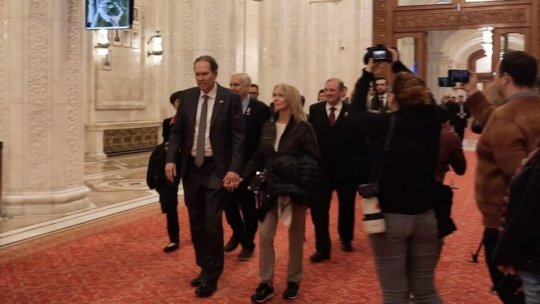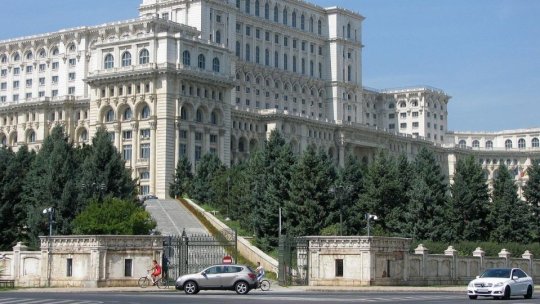Financial Press Review, 3 March
Articles from the Ziarul Financiar, the Bursa, the Curierul Naţional and the Dilema veche.

Articol de Dinu Dragomirescu, 03 Martie 2011, 18:59
The Ziarul Financiar opens with an article entitled ‘The petrol price increase may bring back recession. What is the use of Romania’s oil supplies?’.
It results that ‘the national advantage to have supplies of its own is almost null. (...) European statistics show that in our country, prices are almost as large as any European country which has no supplies.’
The Petrom officials argued that ‘the final fuel price is not related to oil supplies, but with market conditions’.
The press continues to comment on the customs corruption scandal.
The Bursa reads ‘NAFA and Customs Authority Management, accused of corruption.’
The two institutions were shaken by one Italian businessman’s accusation called Antonello Celestini .
‘I was told very clearly that if I didn’t pay, then I would not be able to do business in Romania’, Celestin states in the daily Bursa.
The Ziarul Financiar reads ‘Record 1.8 million bribery accusation at NAFA. NAFA senior advisor and Riff chairman, arrested.’
The Bursa publishes the opinion of a former Control Minister, Ionel Blănculescu, who considers that ‘the NAFA intervention in identifying illegal wealth by creating a specialized department, after the American model, is beneficial; while taxing the unjustified wealth by 16 percent is a huge blunder’.
‘Through the application of this tax, the state would legalize crime by a sort of tax amnesty.’
In the Dilema Veche magazine, Vintilă Mihăilescu publishes an article questioning the coherence of the long term ‘vision’ proposed by the new education law.
‘The pattern of the law is the European one, the one of the “Bologna spirit” and of the transition from colleges to the corporate-management universities’, the author writes.
‘Only that in the meantime, this pattern was highly contested by the European academic world, while we took it over without processing it as a banner of’ modernization. (...) But among the lines of this law (...) political repercussions can be easily noticed which are more ‘traditional’ and local. (...)The true spirit of the law does not become clear until the university level.’
In free translation: the teachers’ council is on the sidelines (but that it is still ‘collaborating’), and the teachers’ governing body will never have the majority to decide anything. On the contrary, with the selfless support of a parent, the City Hall may require anything in the every legal and democratic possible way. In a freer translation, this is called politicisation - even if it is presented as a depoliticisation !’.(...) ‘Clean modernisation, mon cher!...’, Professor Vintilă Mihailescu concludes in his ongoing column in the Dilema Veche.
The Curierul Naţional asks in an article ‘How much does it cost to support the Leu currency?’. In February the National Bank of Romania used 400-500 million euros from the reserves to support the Leu after last year it had used 3-4 billion euros for the stability of the leu exchange rate’, the newspaper quotes ING Bank Romania analysts in the article .
The same newspaper publishes an article under the headline ‘Romanians reluctant to start a business.’
‘According to a survey, only 4.29 percent of the Romanians launched or run a new business in 2010.’ (...) There is no managerial culture in our country because the state has not invested in developing such programs’ and ‘the people with an entrepreneurial innitiative are not supported by the authorities.
Everywhere you get hit by barriers’, the Curierul Naţional quotes Florea Pîrvu, vice president of the National Council of Small and Medium Sized Private Enterprises in Romania.
Translated by: Iulia Florescu
MA Student, MTTLC, Bucharest University









